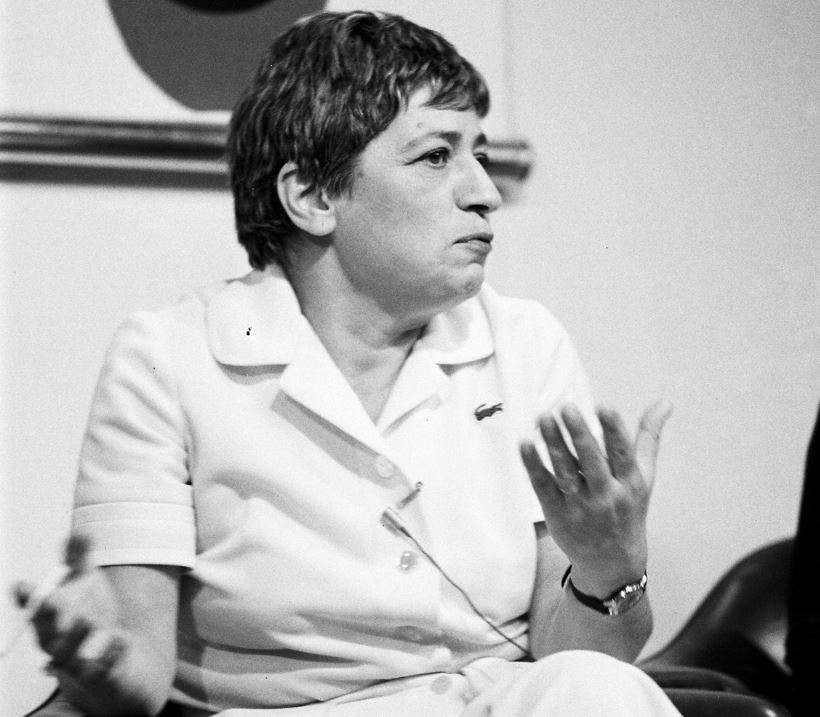
Midge Decter speaks during a press conference on October 2, 1973 in Tokyo, Japan. Photo by The Asahi Shimbun via Getty Images.
This Week’s Guest: John Podhoretz
On May 9, the cultural commentator Midge Decter passed away. Author of essays and books, editor of magazines, and mentor to generations of writers, Decter was subtle, clear, and courageous in her thinking. Though a member of the Democratic party for most of her life, Decter was an anti-Communist liberal who gradually became more conservative over time, eventually becoming, along with her husband, Norman Podhoretz, a leading neoconservative.
On this week’s podcast, her son, John Podhoretz, the editor of Commentary magazine, joins us to reflect on her life. He recently published a eulogy for her in which he wondered what in her background could explain her style, force, and view of the world. Decter wasn’t born into a family of ideas and argument, yet that was where she made her indelible mark. In conversation with Mosaic’s editor Jonathan Silver, Podhoretz thinks about his late mother’s life and work.
Musical selections in this podcast are drawn from the Quintet for Clarinet and Strings, op. 31a, composed by Paul Ben-Haim and performed by the ARC Ensemble.
Excerpt (24:27-27:17):
She didn’t care about tax rates, she didn’t care about regulations and getting rid of regulations. Mostly what she cared about as a writer was the relations between men and women, women’s relations to themselves and the larger society, and their roles as women. She cared about the problems of being a parent or a citizen in this incredibly affluent society that nonetheless seemed to have lost its way. That was the main subject of her work I would say, as a writer and a critic.
In three years she published three books: she published a collection of essays called The Liberated Women and other Americans, a work that critiqued feminism called The New Chastity, and a book called Liberal Parents, Radical Children. These were thoroughgoing critiques of the prevailing liberal ideas about the relations between the sexes and the fashionable ideas among liberals—not just leftists, but conventional New York City suburban liberals—about the United States in the wake of the 1960s. That was really what concerned her, this preachment that women should view men with suspicion and as adversaries rather than as mates and partners and people to go through life with; that they should view being a mother and being a parent as a blessing and an opportunity rather than as some kind of curse or a reason to feel aggrieved, as though they were being exploited and used by men and by the larger society.
That was what really stuck in her craw: liberal pieties about how difficult life was for middle-class and upper-middle-class Americans. Never in the course of all human history had anyone had it so good, and never before had anyone whined quite so much. She was so averse to whining. She hated whining; she hated hearing her children whine. She was always saying, “Dust yourself up. What are you complaining about?” She herself lived this way. She felt that her life was a blessing and, though she wasn’t a religious person, that it was a sin to not view life as a blessing that you should cultivate, rather than sitting around looking for reasons to say that someone had screwed you or done you wrong.
